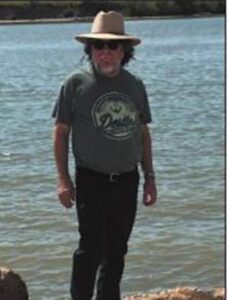Closer Sometimes you have to get super close to see what the problem is. You’ve got to take a thing apart and study it under a magnifying glass, a microscope, an electron microscope, a nanoscope. Only then can you see how truly fucked up something is. I tell you this, I wave the photographs under your nose tell you all the things bubbling under family picnics and Christmas sweaters but you have subsided beneath concrete and denial. I could set a barbecue on top of your hiding place, have all the neighbors over and no one would ever know The police could come with their dogs and even they would not know. Sometimes you have to rip a wedding dress into shreds and make a ladder out of it sometimes you have to stuff bits of the wedding dress into the necks of bottles filled with gasoline before anyone listens. Sometimes yelling isn’t enough because people develop selective hearing over time. Sometimes you have to get super close to see what the problem is. and Run You can wake up before the sun rises, pull the suitcase out from under the bed, slip into your shoes step quietly out the door but you will never leave them. You can dress up in any traveling costume you want, apply for a passport tell the dog you’re sorry it has to be this way slip into your children’s bedrooms and kiss them in the dark but you will never actually step out that door, no matter how much you’ve spent on that plane ticket, that overnight bag those high heels that seem silly on a mother, a wife. It’s all pretend, which is why You always keep receipts for anything other than groceries you always cancel your flights, your cruises, you rental cars within the 24 hour return window because there is nothing that can tear you away from this reality you’ve built there is no fantasy strong enough to pull you all the way out the door. When It Happens When I kill you, it will be as a bird, a crane with a long, sharp beak great wings stretched out like an angry cape, there will be no misunderstanding no talking me down, as a bird I cannot help but be very single-minded with eyes as black and sharp as my intentions. You’ll see. When you hear me singing outside your window, perhaps tapping on the glass in the middle of the night, when a bird should be asleep, head tucked under a wing you’ll know why I’m there and how I’ve come and what I’ll do because you’ve read it all in the chicken scratch of diary pages in the letters I’ve folded into the thatch of our nest. Carrier I slip a piece of paper beneath the perch and ask the bird to take a letter paint ink on its little toes and dictate in German. In between my bad diction and the canary’s inability to properly shape words, I imagine that someone might think we had composed a poem together, written in some archaic language from an extinct desert people who carved words in the mud with the ends of pointed sticks. This is how hard it is for me to talk to you, it’s as agonizing as corresponding via avian persuasion. In the end the letter I pull out of the bird cage will need heavy editing before I fold it into a paper crane, puff air into its chest to fill it out toss it out the window and pretend it’s fluttered away. In Lieu of a Red Pencil The longer a book sits on a shelf in the basement the more editorializing book mites and silverfish makes to the passages the more likely entire passages will be excised from chapters by brachiating arms of lichen and blossoming paper molds. Eventually, the book will become more the property of the tiny editors that swallow words whole and allow pages to disintegrate until it becomes so unrecognizable from the original text that even the author will have a hard time explaining the inspiration behind phrases reduced to nonsense, illustrations encrusted beyond repair.
Holly Day
Short bio: Holly the books, and Day’s poetry has appeared in over 4,000 publications internationally and she is the co-author of Music Theory for Dummies Music Composition for Dummies.She currently works as an instructor at The Richard Hugo Center in Seattle and at the Loft Literary Center in Minneapolis.
Holly’s cover note to the Editor:
Dear Robin Ouzman Hislop, Poetry Editor, Artvilla:
Just outside my window, hundreds of brown and white sparrows are covering my back yard. They blend in so well with the curled brown leaves and dried-out plants that the only way I can tell they’re there is when one of them encroaches on the other’s foraging space, resulting in an explosion of tiny wings and the occasional puff of loose feathers. Every fall, this congregation of birds both excites and depresses me—excites me because it’s simply glorious to see so much wildlife, even if it is just sparrows, right outside my window, yet depressing because they only gather like this at the end of summer.


